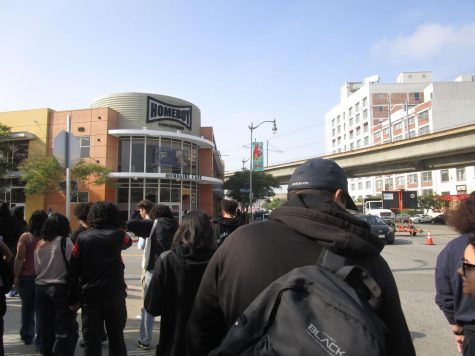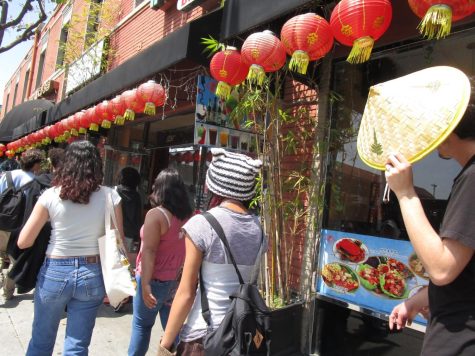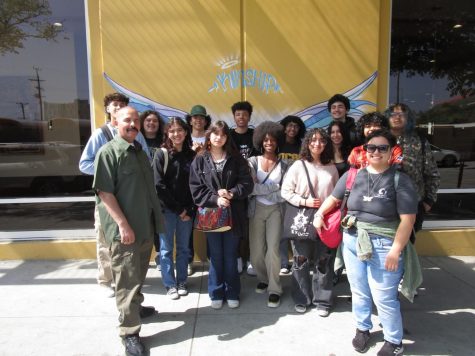DVC; Diversifying History Class
In California, students must take three years of history courses to fulfill their A-G requirements. It is no surprise that learning history is essential, but with each class focusing mainly on wars, it may be in every school’s best interest to include more social movements.

The three classes DVC students take sophomore through senior year are World History, U.S. History, and Government and Economics-the last two being semester-long courses. World History and U.S. History cover the history and struggles in all regions and countries across the globe. Government and Economics cover how the branches, voting process, and proceedings of a court session work, while Economics covers how our government deals with others when it comes to imports and exports, and understanding markets, monetary value, and climate issues that impact our economy. This is usually taught in senior year to prepare those beginning to vote as they take into account and consider our nation’s current and future state.
History is important because it impacts aspects of our society. An example of this is in the court system. Lawyers and attorneys often look back in time specifically at precedents to win their cases. Precedents are important court cases that impact how court cases related to that topic in the future will be handled. For example, if you got sued over eating someone’s pet goldfish and won a lawyer arguing for a man who ate someone’s pet chicken may use this case as supporting evidence. With History being this important it is always good to learn all sides of history and learn how to put yourself in someone else’s shoes, which is where Social and Ethnic Studies come in.
First, Ethnic Studies is the study of the history, experiences, cultures, and/or issues of multiple racial-ethnic groups. Recently people have begun to actively seek representation in the media, but they should also see this representation in history class as well. Melina Abdullah, a professor of Pan-African Studies interviewed by Inside Higher Ed, shared her feelings about her job.

“I think when students walk into our classes, they find themselves…When they are exposed in the university, it can do for them what it did for me,” said Abdullah.
Kennedy West, a DVC senior, shared a similar sentiment about understanding other cultures.
“I think it’s important for people to have an understanding of different cultures and different ethnicities and different races and understand the dynamics and spaces where there’s like a bunch of people [that] have those identities,” West said. “I think that [it] is also important for people to like, want to strive for learning about different cultures and like ethnicities because it kind of prevents you from having like a very narrow-minded view of the world”
It is always a good idea to learn about other cultures and communities, and to understand what struggles they have prevailed to get to where they are. This is key to fostering generations full of empathy, which could make for more peace and understanding. In 2022, Da Vinci Communications introduced an Ethnic Studies class taught by eleventh-grade U.S. History teacher Steven Covelman. He shares his reasoning on why Ethnic Studies is important.
“[Ethnic Studies] gives people an opportunity to learn not only about like their own identities but like the identities and backgrounds of others to help form I think, a tighter community not only here at DVC, but hopefully also when students who take this class go outside of this classroom, they have a much deeper knowledge of like themselves and others as well, so that it creates a much more welcoming opening environment for all of us,” he said.
West, one of the first students to take the class back in her junior year, reflected on taking that class.
“I think one of the things that I really kind of saw in my class specifically was like, there wasn’t a lot of people in that class, but we kind of [had] like a community there,” West said. “And we kind of made it a space where we were kind of comfortable with each other and we learned from each other. I think the class needs to be promoted more because it is a really great class and it actually can bring like a lot of people together in this school.”
Covelman says that he was not introduced to Ethnic Studies until college, but many others never come across this subject. When it comes to considering what grade would be the best time for students to take Ethnic Studies, Covelman revealed his perspective.

“I’m not necessarily sure which grade I think is best, I think there are different advantages to taking it at different times, depending on what age you are. But the most important thing is to get an opportunity to take a class like that,” said Covelman.
West agreed with this statement and believes that this should be a mandatory class that expands further than just a year.
“I think it should be a mandatory class and I think it should be four years long. It being [an elective] here is great, but I think expanding it would be really better as well. I think it should be a class that you should have at least for two years,” West shared.
Covelman finished his interview with some wise words about the importance of having a class like this that teaches people about a myriad of cultural groups and their history.
“People benefit a lot from not only knowing more, not only about like themselves but learning more about like the identities of other people in both California, the United States, just the world in general,” he stated. “And the more informed people are about each other, I think the more we start to understand how many more similarities we have than differences and the world becomes a much better place.”
History has come a long way, from silencing unpopular narratives to including world history and African American and LGBTQIA+ history, but it can go further still. With a mandatory year-long ethnic studies class not only at DVC but other high schools as well, we can begin to introduce a more empathetic and understanding generation. While world peace may be impossible, it doesn’t hurt to try to create peace between school students regardless of differences.